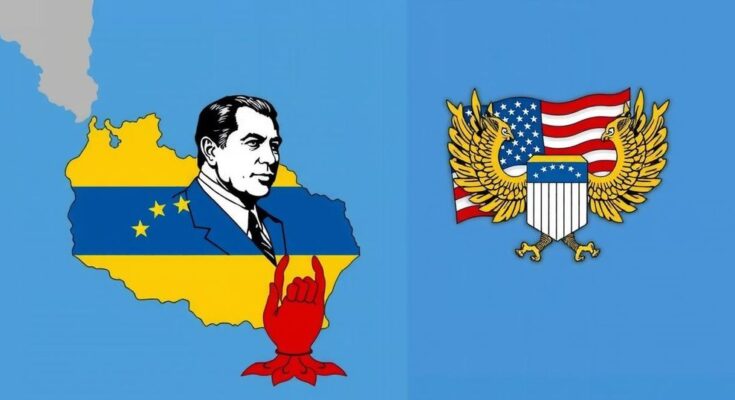The United States imposed sanctions on 21 of Maduro’s allies for repression following Venezuela’s disputed presidential election. Key officials were targeted, and the Biden administration recognized opposition candidate Edmundo González as “president-elect,” while also imposing visa restrictions on individuals repressing dissent. The effectiveness of these actions remains uncertain as the Maduro government retains power amidst ongoing human rights concerns.
The United States has recently imposed sanctions on 21 additional affiliates of Venezuelan President Nicolás Maduro, accusing them of involvement in acts of repression following the contentious presidential election in July. The sanctions, announced by the Treasury Department, target key security and cabinet officials, including the head of the corrections agency and the director of an intelligence service, thus expanding the list of Venezuelans previously sanctioned for human rights violations and electoral misconduct.
In a strategic move, the Biden administration recognized opposition candidate Edmundo González as the “president-elect,” further contesting Maduro’s claim to victory in an election marred by accusations of fraud and lack of official vote counts. Following a warrant for his arrest, González sought asylum in Spain after alleging he won the presidency significantly and leading opposition parties. Additionally, the U.S. placed visa restrictions on individuals involved in repression against Venezuelans after the July elections, signaling a continued commitment to support Venezuelan democracy amid ongoing governmental repression.
The growing list of sanctions aims to hold accountable those who are allegedly complicit in undermining democracy; however, their effectiveness remains uncertain as Maduro loyalists continue to maintain substantial power in Venezuela’s government. Concurrently, Venezuelan lawmakers are contemplating legislation that would classify economic sanctions as a crime against humanity, potentially allowing for legal actions against those endorsing such measures.
Understanding the current political situation in Venezuela is essential as it involves significant tensions surrounding the country’s leadership. Nicolás Maduro’s regime has been persistently criticized for its handling of democratic processes, particularly during the disputed election held in July which the opposition and numerous international observers deemed fraudulent. The response by the United States through sanctions seeks to highlight and penalize human rights abuses and repression occurring under Maduro’s government, while also acknowledging and supporting the opposition’s claims of legitimacy. As the opposition remains under threat, the legal and political landscapes in Venezuela continue to evolve.
In summary, the United States has taken decisive actions against Nicolás Maduro’s regime by imposing sanctions on 21 of his allies, highlighting a commitment to combat human rights abuses and electoral fraud. Despite these measures, the Maduro government maintains a stronghold over Venezuela, presenting challenges to the effectiveness of such sanctions. As the political situation continues, ongoing debates and potential legislation within Venezuela could further complicate the international response and accountability regarding human rights violations.
Original Source: abcnews.go.com




